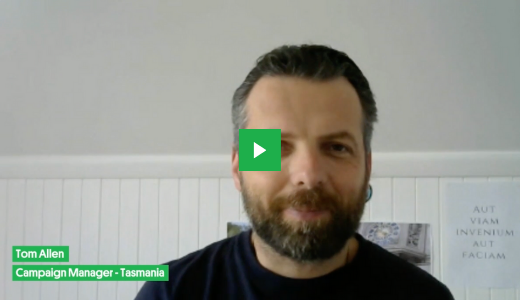Wilderness Journal
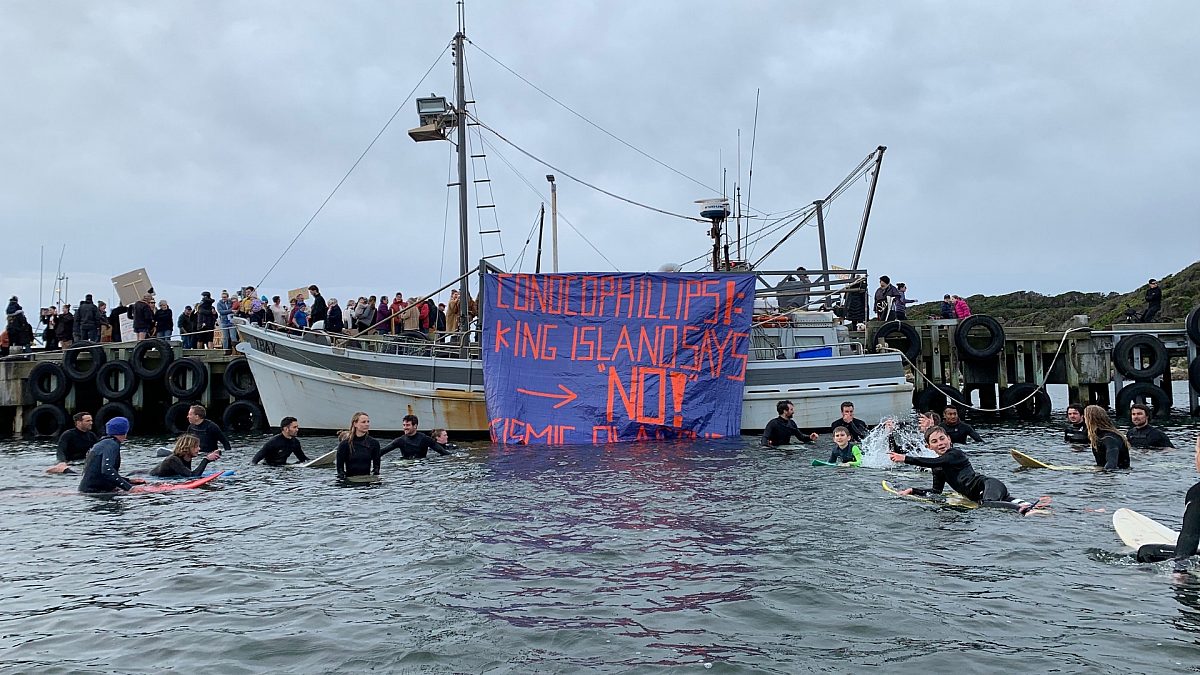
Making a difference
With your support we've been able to take action for nature all over the country.
From lutruwita's / Tasmania's King Island and Lake Malbena, to NSW's Wollemi National Park and WA's South West forests, it's been a busy few months for the Wilderness Society, and all made possible because of you. Here, reports of our work from July to September 2021.
A win for World Heritage and Lake Malbena!
On 16 September, the Full Court of Tasmania’s Supreme Court delivered a ruling overturning a decision to grant a planning permit for Wild Drake’s controversial helicopter-accessed tourism development at Lake Malbena, deep in the Tasmanian Wilderness World Heritage Area.
This is a significant legal victory for the long-running Wilderness Society campaign to protect Halls Island, on Lake Malbena. This outcome wouldn’t have happened without the critical support of people like you who have contributed to keep this campaign moving forward.
Nearly 10,000 people added their names to our submission opposing coal mines next to Wollemi National Park.
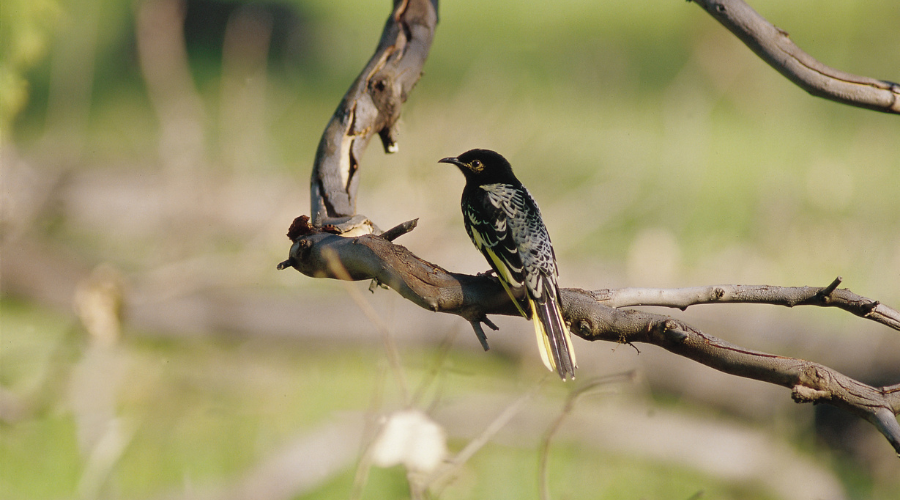
The NSW government is planning new coal mines on the doorstep of the spectacular, biodiverse-rich Wollemi National Park in the Greater Blue Mountains World Heritage Area.
Your contribution made it possible for the Wilderness Society to produce a well-researched, compelling submission to the NSW government’s public consultation process about whether these areas should be released for coal exploration. Nearly 10,000 people like you added their names to this submission—demonstrating wide-spread opposition.
In the submission the Wilderness Society raised concerns about the devastating impact mining would have on Wollemi National Park. The park has no buffer zones and is at the mercy of damaging development right up to its boundaries (and at a time when the World Heritage status of the Blue Mountains is already under active scrutiny by UNESCO World Heritage Committee due in part to the impacts of mining). We also highlighted that the potential release areas themselves are located in an intact landscape with very significant remnant vegetation, 45 recorded (and many unrecorded) Indigenous heritage sites, 22 threatened fauna species and six threatened flora species—with several sites currently being considered by the Australian Heritage Council for addition to the National Heritage List.
The government received 2064 submissions in total, with more than 99% opposed to coal exploration on the doorstep of Wollemi National Park. With your support, we have made sure the NSW government is aware of the widespread opposition to their plan for more climate-killing coal mines—and they’ll have to factor in this political risk when deciding whether to proceed.
The best chance to stop fossil fuel mega-projects is before they even start. That’s how together, we kicked companies like Santos, Equinor and BP out of the Great Australian Bight. Thanks to your support we can stop these dirty coal proposals progressing to the next step in Wollemi.
King Island residents tell US oil and gas giant ConocoPhillips: No Seismic Blasting!



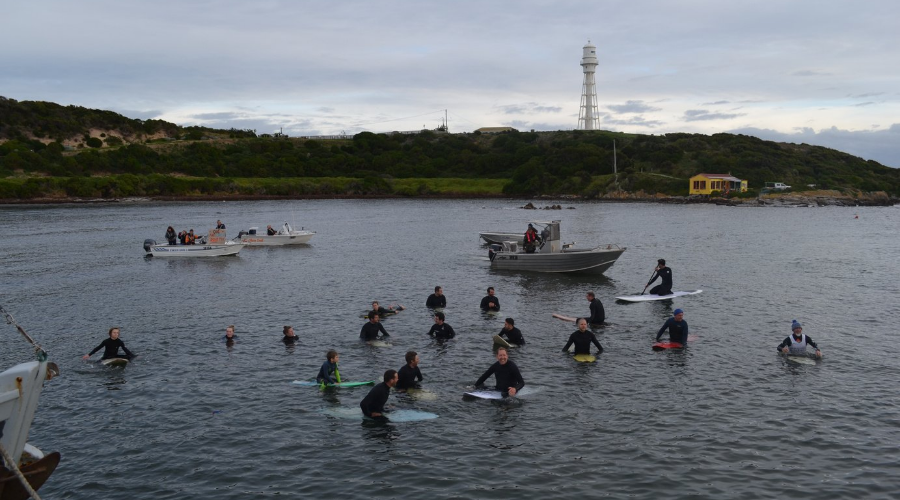

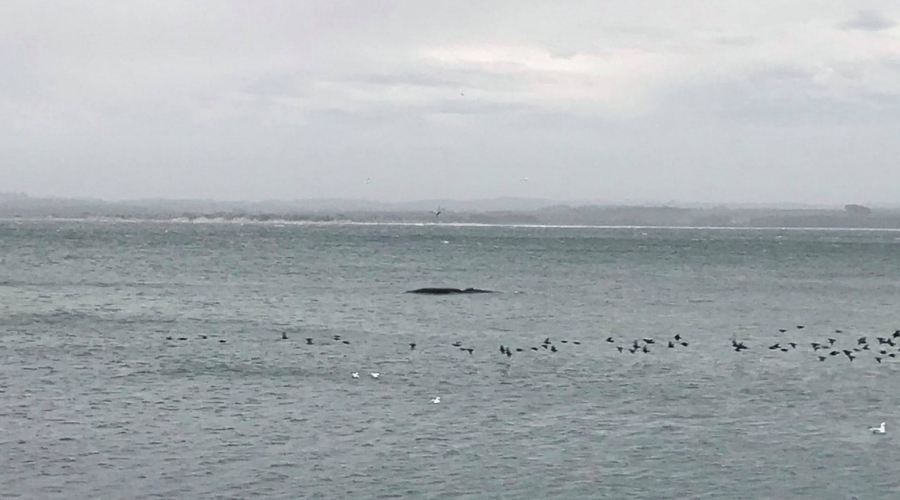
Born and bred King Island resident Justin, recreational fisher said, “I was in Florida for a Shuttle launch in 2011, I was a mile away watching the Shuttle break the sound barrier over the water. When the sound hit you it felt like it moved through your body, it was incredible. That kind of noise is what they plan to beam down to the seafloor, and it’s worse underwater. I couldn’t imagine swimming out there.” Image: Tom Allen.
Recreational fisher from Stanley, Jeff Power, is concerned about the impacts of seismic blasting. “Local fishers aren’t going to be happy if this impacts their whitebait and flathead catches,” said Jeff. “Not to mention the disturbance to the dolphins and whales migrating through this area.” Image: Tom Allen.
"ConocoPhillips' business model and the continued expansion and extraction of oil and gas is illegitimate," said Tom Allen, Tasmania Campaign Manager for the Wilderness Society. "The King Island community doesn't want seismic blasting. ConocoPhillips carries no social licence to operate. It should return to the US and rapidly decarbonise." Image: Tom Allen.
“People on the island are unhappy with the lack of communication about the impacts this seismic surveying will have on their lives and livelihoods. The community don’t want this blasting to happen. There are spearfishers, divers, surfers and swimmers in the water all the time and yet it appears they could be at risk if they enter the water during the seismic testing period,” said Surfrider’s Ally King. Image: Tom Allen.
The paddle out saw 200 local people, fishers, surfers on the water and pedestrians congregate at the harbour at the capital Currie with placards and banners. Image: Tom Allen.
A whale just off the coast of Stanley, seismic blasting has been approved 57km off the same coast. Image: Jeff Power
The last few months in numbers
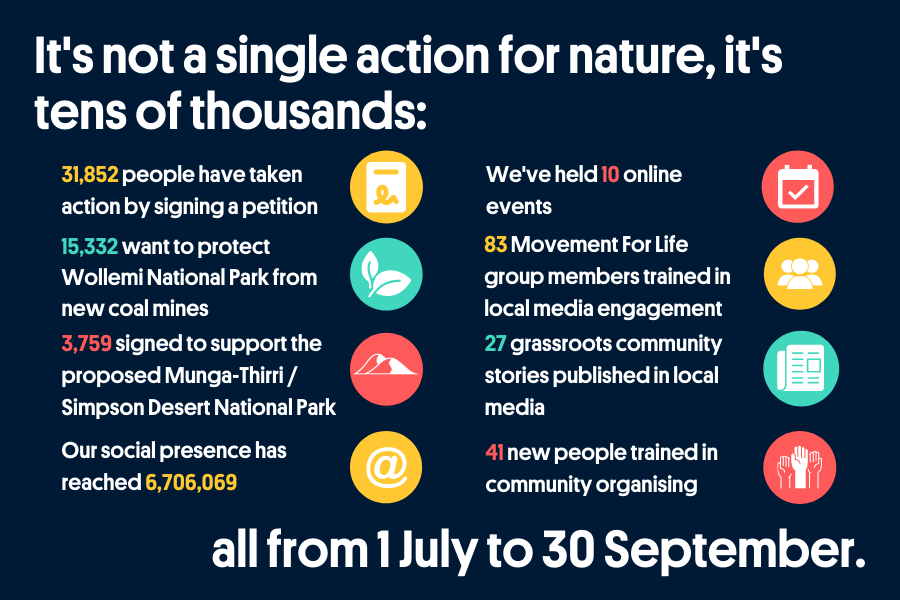
WA's South West forests saved!
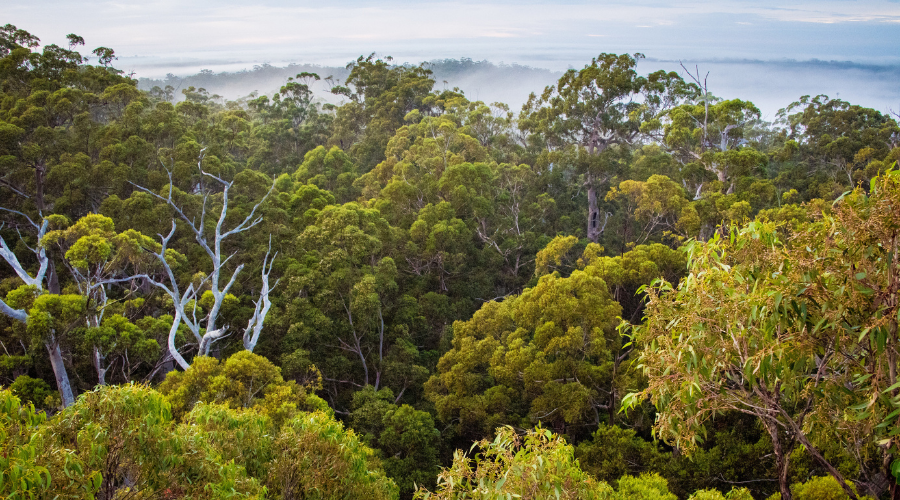
Backed by your actions—and thousands of other people like you who raised their voice—the WA government has announced the protection of South West native forests from logging by January 2024. With your support, this powerful campaign led by the WA Forest Alliance has resulted in one of the largest environmental reforms in Western Australia’s history.
Since 2001, the Western Australian community has lived with a misconception that reforms to protect old-growth forests led to the broad protection of high conservation value native forests. But this is simply not true. In the past 20 years, high conservation value native forests consisting of stately karri, jarrah and wandoo forests have continued to be destroyed, leading to massive environmental harm and wasteful taxpayer subsidies. However, the protection of these forests is changing, and it's all because of you.
During the 2021 WA election, Wilderness Society supporters like you were asked to participate in a community survey on the value and future use of the South West native forest. Out of 17,000 respondents, 95% of people across metropolitan and regional areas agreed with the need to protect more native forests, as well as 73% agreed that no native forest harvesting should occur. The message to the WA Premier, the Minister for Environment and the Minister for Forests was clear—continued logging of high conservation value native forests is unacceptable.
From the WA government’s announcement, an additional 400,000 hectares of native jarrah, karri and wandoo forests will be protected. These high conservation value native forests are worth far more standing—for complementary activities such as beekeeping, tourism and recreation. This announcement also reflects the global recognition of the role that native forests play in mitigating the worst impacts of climate change.
Major reforms like this require patience, perseverance and a lot of individual voices and personal stories. Thanks to you, this is what has occurred.
But it isn't over yet. It is vital that all of WA's high conservation value forests are protected from harm.
The ongoing management of the South West native forests will need to be monitored closely following this major announcement, to ensure that ecological and biodiversity outcomes are achieved. Additionally, the WA government also intends to continue with deforestation and mining in the northern jarrah forests, in Whadjuk and Bindjareb Country and on the doorstep of Perth.
With you, we will be focused on securing reform and protection for these forests left out of the recent announcement.
We acknowledge the many peoples of the Noongar nation, who have respected and retained a living cultural connection to the karri, jarrah and marri forests.
